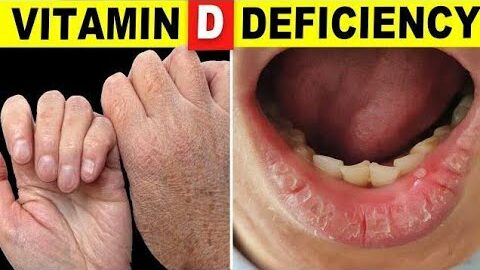
Vitamin D is essential for maintaining healthy bones, supporting the immune system, and overall well-being. While we often think of lack of sunlight as the primary reason for low vitamin D levels, there are several other unexpected causes that might surprise you. Here are the top eight unexpected causes of low vitamin D.
1. Indoor Lifestyle
Spending too much time indoors can significantly reduce your exposure to sunlight, which is necessary for the body to produce vitamin D. Modern lifestyles often involve working inside offices, spending leisure time indoors, and not getting enough sunlight.
2. Sunscreen Use
While protecting your skin from harmful UV rays is important, excessive use of sunscreen can block the absorption of sunlight needed for vitamin D synthesis. Using sunscreen with a high SPF can prevent your skin from making enough vitamin D.
3. Geographic Location
Living in northern latitudes or regions with limited sunlight during certain times of the year can lead to low vitamin D levels. People living further from the equator are at a higher risk, especially during the winter months.
4. Skin Color
Melanin, the pigment that gives skin its color, can interfere with the skin’s ability to produce vitamin D. People with darker skin have more melanin, which means they need more sun exposure to produce adequate levels of vitamin D.
5. Dietary Choices
A diet lacking in vitamin D-rich foods can contribute to deficiency. Fatty fish, egg yolks, and fortified foods are good sources of vitamin D. Vegetarians and vegans might be at higher risk due to the lack of these foods in their diet.
6. Obesity
Body fat can absorb and store vitamin D, making it less available for the body to use. People with higher body fat percentages often have lower levels of circulating vitamin D.
7. Age
As you age, your skin’s ability to synthesize vitamin D decreases. Additionally, older adults are more likely to spend time indoors and may have dietary limitations that contribute to lower vitamin D levels.
8. Certain Medications
Some medications can interfere with vitamin D metabolism. These include anticonvulsants, glucocorticoids, and some cholesterol-lowering drugs. If you’re taking these medications, it’s important to monitor your vitamin D levels.
How to Boost Your Vitamin D Levels
To ensure you’re getting enough vitamin D, try to spend some time outdoors each day, eat a balanced diet that includes vitamin D-rich foods, and consider supplements if necessary. It’s also a good idea to get your vitamin D levels checked regularly, especially if you fall into any of the risk categories mentioned above.
Final Thoughts
Understanding the unexpected causes of low vitamin D can help you take proactive steps to maintain healthy levels. By addressing these factors, you can support your overall health and well-being. If you suspect you have low vitamin D levels, consult with a healthcare provider for personalized advice and guidance. Stay healthy and enjoy the sunshine!




